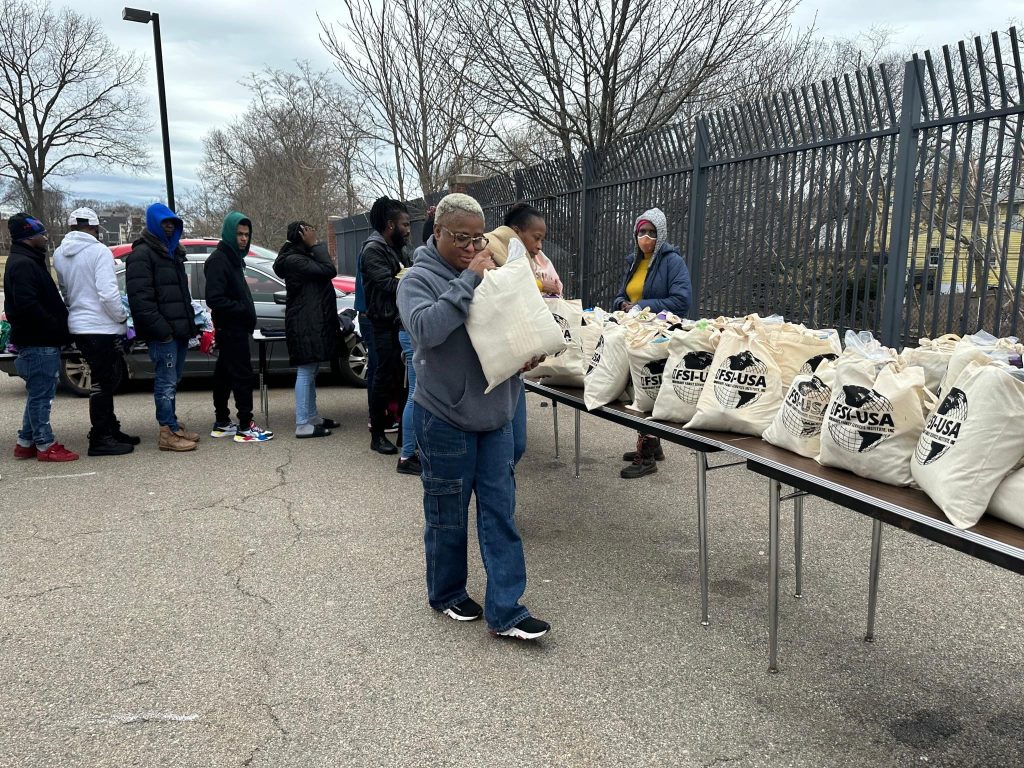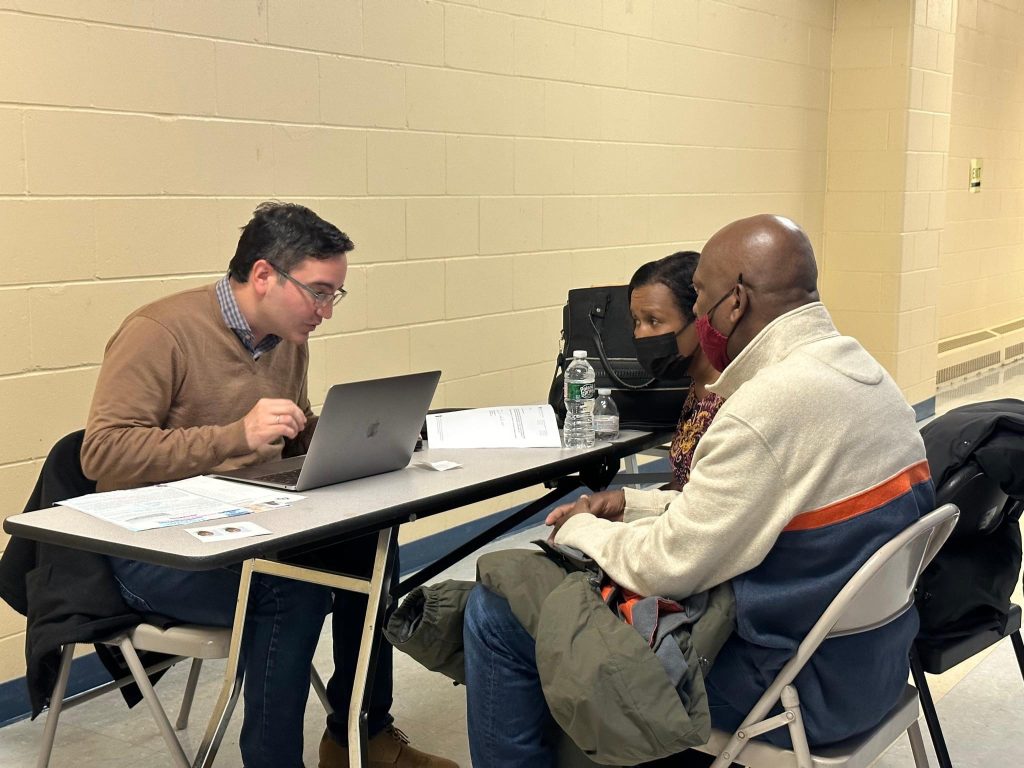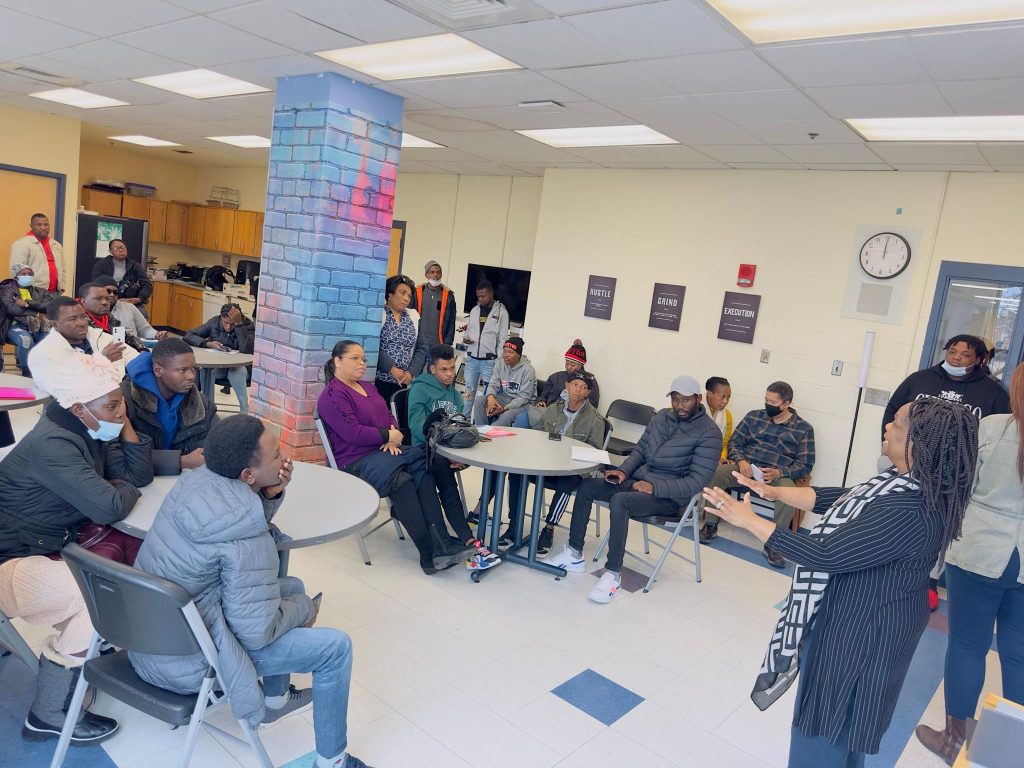The Massachusetts Immigrant Collaborative (the Collaborative) was founded in April 2020 in response to inequities experienced by the immigrant community during the pandemic. We are a statewide and diverse collaborative of 15 immigrant serving organizations working to ensure shared access to resources to support – with dignity and equity – immigrant communities that have been historically under-resourced, including those at-risk and/or without status.
We do this in solidarity with the families, respecting their dignity and human rights, supporting their long-term economic mobility while seeking to address urgent needs such as cash and food assistance, immigration legal services and education, equitable access to vaccines, worker’s rights and workforce readiness, and access to a broad range of services and opportunities that each partner organization provides.
Since our founding, we have:
- Provided emergency cash assistance to 120,000 immigrants
- Distributed 4,000,000 pounds of food
- Offered trusted access to COVID vaccines to 5,000 people
- Trained 300 youth in leadership and workforce skills
Our Partners

- Agencia ALPHA
- Boston Chinatown Neighborhood Center(BCNC)
- Boston International Newcomers Academy (Boston Center for Collaborative Education)
- Brazilian Worker Center
- Caribbean Youth Club
- Centro Comunitario de Trabajadores (New Bedford)
- Centro Presente
- Dudley Street Neighborhood Initiative (DSNI)
- ICNA Relief
- Immigrant Family Services Institute (IFSI)
- MetroWest Workers Center: CASA (Framingham)
- New North Citizen Council
- Pioneer Valley Workers Center
- Rian Immigrant Center
- Sociedad Latina
Collaborative Programs Priorities

Emergency Cash and Food Assistance
We assist immigrant families by gathering funds to provide them with essential necessities, including food, childcare, rent, and utilities. Our collaboration with 15 organizations ensures that resources are allocated fairly and transparently to immigrant communities throughout the state.

Shared Capacity Building
Our organization highly values the continuous enhancement of our capabilities. Our partner organizations join us in sharing their wealth of knowledge, skills, and decades of experience through bi-weekly professional development workshops and community updates. This partnership has a positive impact on our growth and capacity to better serve our community.

Immigration Legal Education and Services
We offer culturally sensitive legal services to members of our partners’ community, with a focus on combatting notary fraud and providing information on immigration procedures and individual rights. Our goal is to increase awareness and empower individuals with the knowledge they need to protect themselves and their families.

Workforce Development and Workers’ Rights
We understand the importance of gaining essential career skills, job-specific training, and digital literacy programs, as well as ESOL classes. That’s why we strive to connect individuals with workshops that offer these resources. We also believe that everyone should be aware of their rights as a worker, and we’re here to provide informative workshops to ensure that our community is well-informed and protected in their workplace.
Advocacy
We strive to promote immigrant rights and engage in community outreach by addressing crucial matters such as access to driver’s licenses, food, and tuition equity for immigrant students.
Immigrant Economic Recovery Initiative (IERI) – Partnership with the City of Boston
We strive to promote immigrant rights and engage in community outreach by addressing crucial matters such as access to driver’s licenses, food, and tuition equity for immigrant students.
The Collaborative is delighted to be partnering with the City of Boston Equity and Inclusion Cabinet on a new initiative to meet the basic needs of immigrant community members in the City. For one year, the Immigrant Economic Recovery Initiative (IERI) will support 200 low-income immigrant households disproportionately impacted by COVID-19 in Boston. To learn more, check out our press release here or contact Guerlince Semerzier at gsemerzier@immigrantrelief.org.
